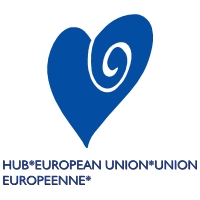***“The EU’s aims are unchanged: reaching an ambitious and comprehensive agreement in Copenhagen is essential. We want to push the Copenhagen Conference into becoming the milestone the climate needs”, said Andreas Carlgren after the start of the UN Climate Change Conference in Copenhagen on Monday.
EU will push for Copenhagen to be the milestone the climate needs
“The EU’s aims are unchanged: reaching an ambitious and comprehensive agreement in Copenhagen is essential. We want to push the Copenhagen Conference into becoming the milestone the climate needs”, said Andreas Carlgren before the start of the UN Climate Change Conference in Copenhagen on Monday.
Andreas Carlgren will lead the ministers for the environment from the EU Member States.
Ahead of Copenhagen, EU Heads of State and Government agreed that the Copenhagen process should lead to “a legally binding agreement for the period starting 1 January 2013 that builds on the Kyoto Protocol and incorporates all its essentials”.
“There has been talk of a ‘two-step solution’, but for the EU, the agreement in Copenhagen is rather the step. It is in Copenhagen that the deal containing all the important elements to save the climate must be struck. Within a clearly agreed timescale, this binding agreement must then be translated into a ratifiable text. That should be a more technical issue, since the contents will already be delivered in the ambitious agreement”, said Andreas Carlgren.
This presupposes an agreement in Copenhagen which, in total, achieves emissions reductions that are sufficient to keep the goal of limit global warming to less than 2º Celsius within reach. An agreement with all countries whereby:
* industrialised countries commit to emissions reductions that cover the total emissions of that country (economy-wide), and all industrialised countries combine their emissions targets in an agreement;
* the more advanced developing countries commit to measures to bring their emissions below business-as-usual levels, particularly the large economies and the major emitting countries included in major economies;.
* industrialised countries provide immediate financial support for necessary climate measures in developing countries over the next few years, i.e. in 2010, 2011 and 2012.
* a system is created to provide long-term support for emissions reductions in developing countries, covering adaptation, technological cooperation and technology transfer.
Finally, the agreement also needs to contain a review mechanism so that the necessary measures can be subsequently adjusted in line with new scientific evidence that may emerge about the climate.
The agreement in Copenhagen should therefore open the way for immediate measures, instead of waiting for the expiry of the Kyoto Protocol in 2013. The EU has been extremely proactive in pressing for rapid disbursement of funding for adaptation measures and initiatives to prevent rainforest devastation.
“We must take rapid action if we are to divert the global emissions curve downwards. Rapid action is crucial if we are to have any possibility of keeping global warming below 2 degrees Celsius”, said Andreas Carlgren.
The EU has a strong, comprehensive negotiating mandate for the UN Climate Change Conference in Copenhagen. Among other things, the mandate establishes that:
* by 2050, the EU should reduce emissions of greenhouse gases by 80–95 per cent compared with 1990 levels
* irrespective of actions by other countries, the EU will reduce its emissions by 20 per cent by 2020, but wants to reduce them by 30 per cent if other parties are willing to make similar commitments
* several criteria will be used when comparing other industrialised countries’ emissions reductions, but the target of stopping the rise in temperature to 2º Celsius will be primarily used as a benchmark
* emissions from international transport must be reduced, with a 10 per cent reduction for air transport and a 20 per cent reduction for maritime transport compared with 2005 levels needed by 2020. The Copenhagen Conference should lead to the use of revenue from air and maritime transport to pay for initiatives in developing countries, particularly the poorest ones
* rainforest devastation must be halved by 2020 and stopped by 2030. The EU is calling for the Copenhagen Conference to take decisions to stop rainforest deforestation, support reforestation and create sustainable forestry. This is the only way to reduce emissions fast enough and achieve success in Copenhagen.
Step by step, the EU has clarified its positions and moved forward, and is therefore in a position to make demands and press other parties throughout the process.
With the most far-reaching bid on the table, the EU has been proactive in working to persuade other parties to raise their bids. The EU will continue to keep up the pressure. The offer of a 30 per cent EU reduction will continue to be used as a lever.
“The actions currently proposed are not sufficient to achieve the 2º goal. The EU will therefore continue to press for more appropriate commitments to be put on the table. The Earth’s climate has waited long enough. The time has come to show genuine political leadership. The EU is determined to provide that leadership”, said Andreas Carlgren.
se2009.eu
Inscription à :
Publier les commentaires (Atom)















Aucun commentaire:
Enregistrer un commentaire